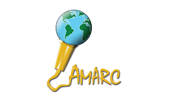
Broadcasters, share your stories from the soil internationally
The International Secretariat of the World Association of Community Radio Broadcasters (AMARC), in collaboration with the Food and Agriculture Organisation of the United Nations (FAO) is welcoming contributions to its Stories from the Soils international radio series.
Developed as part of the International Year of Soils, Stories from the Soils is a collection of 80 stories from producers and community radio journalists from all over the world illustrating our relation to soils and the importance of this resource. It aims to educate communities on the importance of healthy soils, to stimulate discussion and improve the sharing of scientific knowledge on the topics of environment, climate change, food security, agriculture, sustainable development, resilience and economic, cultural and political issues related to soils.
AMARC is calling for submissions from producers and journalists, who will receive $100USD for their contribution and promotion of their audio production at an international level.
More information on submissions:
- Can be documentary, reportage, interview, panel discussion, life stories, etc.
- The format is flexible and the choice of subjects as well (as long as it's related to soils)
- The audio production must be at least 10 minutes long and be ready for broadcast
- Productions in local language are welcomed. (A script must be attached to the final production)
If you want to participate, get in quick - submit a very short proposal via email demonstrating that your subject complies with the requirements of the series. If proposals are successful, AMARC will then send all the supporting documents and set a deadline, as well as being available to assist participants if they have any questions.
Facebook comments